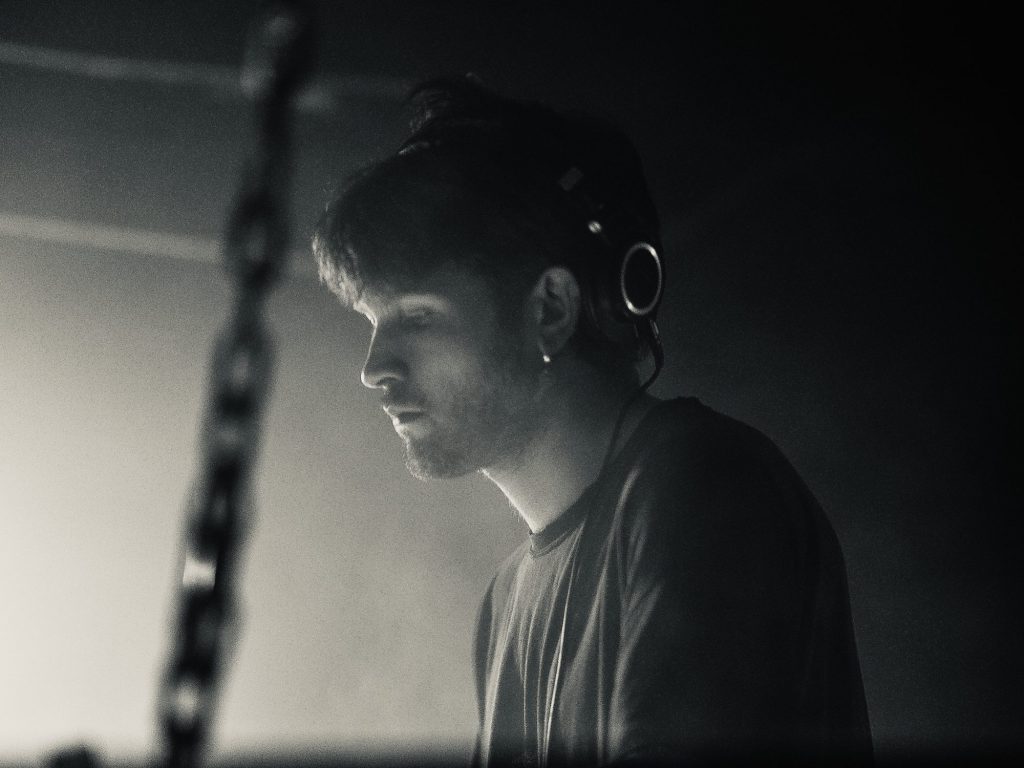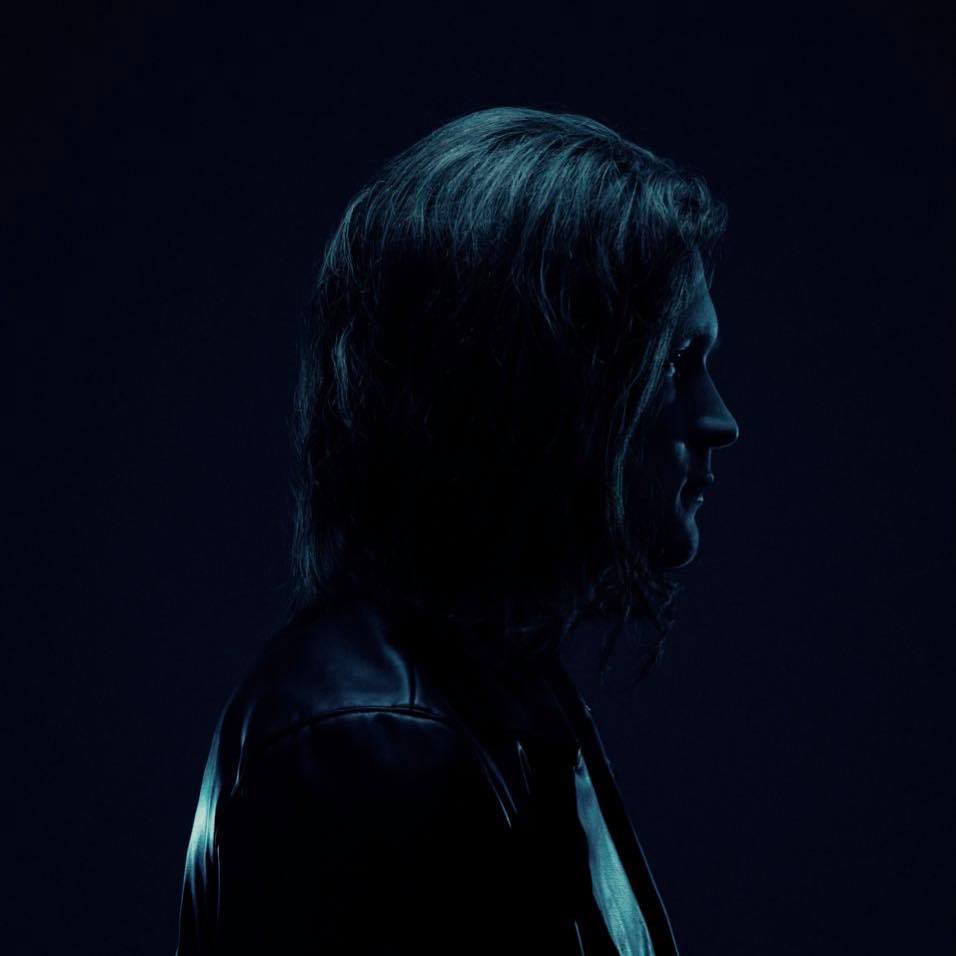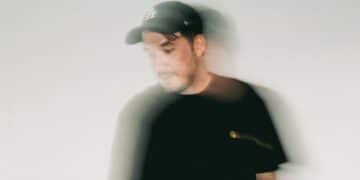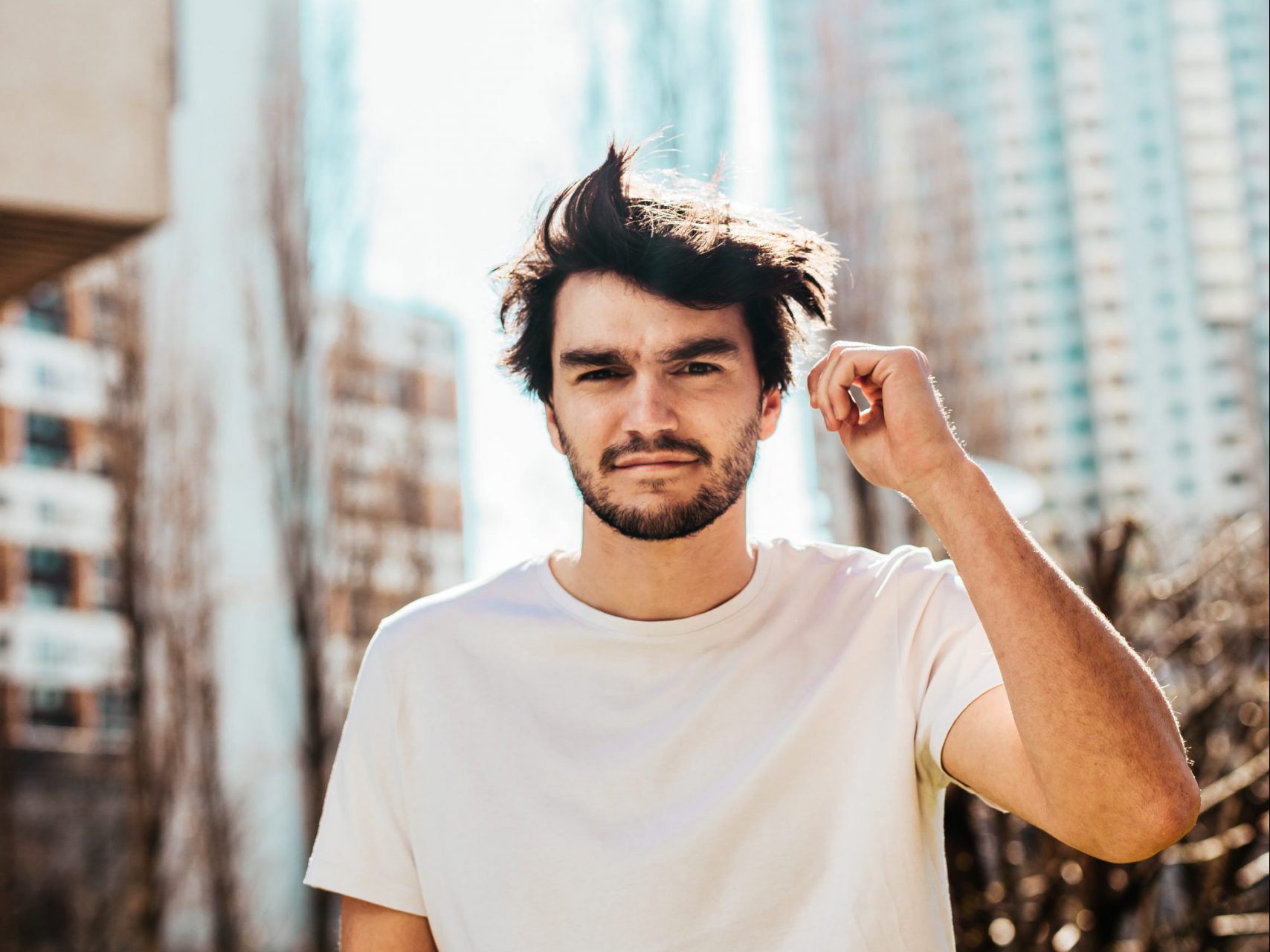Following his set at EDC Las Vegas, we sat down with techno artist Declan James to talk about his flow state, authenticity, and more.
The ever-changing landscape of techno is one that must be traversed with authenticity and dedication, and rising artist Declan James will be the first to tell you that. With a head full of fresh new ideas and an unbridled passion for creating impactful art, his unique approach to techno music is doing more than just pushing boundaries – it’s creating new ones entirely.
At just 22 years old, Declan James is already beginning to pave the way for future techno artists, and his list of accomplishments is growing rapidly with no end in sight. Whether he’s hosting shows through his VOIDWARE collective, releasing music on Space Yacht, creating music on his side project Parallels, or expanding his own “surrealist techno” sound, it seems like the rising producer always has something new up his sleeve. When it comes to going outside the box to curate a brand that is uniquely your own, artists all across the board could take a page out of his book.
After playing his first EDC Las Vegas in 2019, followed by the abrupt halt to live shows brought forth by the pandemic, he made his return to the decks this year at neonGARDEN and wowed the crowd with a heavy-hitting techno set. We got the opportunity to catch up with him after his set and pick his brain on all things VOIDWARE, growing up in Texas, musical influences, and so much more. He recently spun up an exclusive guest mix for us that’s chock full of immersive tunes – check it out below, and read on to get a closer look into the artist’s mind.
Stream EDMID Fall Frequencies 2021 || Declan James on SoundCloud:
Holly: Hi Declan, welcome back to EDC Las Vegas after two years, and congrats on a fantastic set. What were you feeling up on stage? What was going through your mind?
Declan: What’s interesting is, being in techno music, most DJs don’t plan their sets, and for good reason. Because everything is so highly attuned to energy levels that you kind of have to just be watching what’s going on. So, for me, my primary focus was making up the set as I went, because I didn’t fully come with a plan. I came with a very, very vague kind of idea of what was gonna happen, but you just can’t plan properly. So I literally walked up with my USB with thousands of tracks on it, and I had a starting track and an ending track, and that was it.
Holly: That’s so interesting. How do you choose which ones to play?
Declan: Well, that’s what’s fascinating is, it’s a cooperative thing between me and the people in the audience. A lot of the more kind of mainstream dance artists show up with a set that’s planned, right? Because they’re doing a big show. Techno is very improvisational. The lighting person is improvising, the audience is there and their energy is sporadic, and then I’m there; we’re all kind of in this thing together where we’re exchanging some sort of energy with each other. It’s thrilling, I would say. I mean, I could screw up, I could play the wrong track, and the energy’s done, so it’s a tightrope walk almost. But that’s what I like about it.
Grant: I’m sure it was a little bit stressful.
Declan: Right. So that was the main thing I think that was going on in my head was just making these choices in real-time and trying to figure out what’s going on in the room and figure out what the people behind me are doing, and synthesize that all into whatever decision I make.

Holly: So, you kind of coined this term, “surrealist techno.” Can you describe that?
Declan: Yeah. So, I did that back when I was first kind of getting into this stuff. I was at a Nicole Moudaber show, weirdly enough. The whole day I had been reading about Salvador Dali. I like to read a lot, and I just read random stuff. But I was reading about Salvador Dali, and I just got this idea. What if you sort of captured whatever that is? And I couldn’t put that into words, but whatever that is. And I guess you could call that surrealism, or whatever.
So, for me, it’s sort of this conjunction of very aggressive stuff and very ethereal stuff, and that creates this atmosphere that’s very different. That’s something that I definitely did in that set, where it’s very harsh one moment, and then it gets very heavenly and open and melodic. And it’s this weird sort of clash where you’re playing with these two concepts in real-time, which I like, and I think that is surreal, in a weird way. It snaps people out of whatever they’re in and puts them in this weird headspace.
Holly: From the perspective of someone who was in the crowd, it was really interesting because it was really hard, but it was also so immersive that it didn’t feel angry or aggressive – it just felt like you were in the music. It was really cool.
Declan: I feel that way too, and that’s what I like about it – it’s a yin and yang and you’re right in the middle of it, and there’s some weird flow that comes from that.
Holly: Do you find yourself getting into that flow state when you’re here?
Declan: Absolutely, yeah. Again, I don’t even really recall most of the time what my thinking is when I’m there. I couldn’t tell you now what I was thinking, it was just what was happening right now. But that’s what’s exciting about the decision-making in real-time is that you have to be right then. There is no thought of what’s coming – maybe there’s that’s thought of what’s coming when I push the button, but it’s very much rooted in the moment. So it creates a flow state.
Holly: That’s so awesome – it’s like you don’t know how the crowd is gonna feel about the next track, you just kind of have to feel it out. That must be kind of scary.
Declan: It is scary, but that’s what you have to do. It’s like taking a step into complete darkness. You never know what’s gonna happen.
Holly: That brings me to my next question about VOIDWARE, where you have these influences that are ‘90s-inspired along with dark, symbolic imagery. How did you take all these different concepts and form them into the cohesive unit of VOIDWARE?
Declan: I don’t know, is it cohesive? I’m grateful that you think it is. I like to read a lot – I’m actually a student in college still, believe it or not. I’m in my second to last semester right now. I’m a philosophy major, and I like to especially focus on the occult.
Holly: That’s so cool, what are you into?
Declan: Carl Jung, Aleister Crowley, HP Blavatsky – the more occult side of psychology and philosophy and metaphysics and stuff. So for me, I just draw from things I find interesting. It’s about feeling, and not necessarily something that makes sense. It only makes sense when you feel that it makes sense, if that makes sense. It’s not like I’m thinking consciously, “does this work?” It either makes me feel like it works, or it doesn’t.
Holly: I feel like that’s when you make your best music is when you’re feeling and you’re really living out your passion.
Declan: Right. And that’s something that I think gets harder, at least in my experience, with age. I’m 22 right now, so you know, I’m still a young guy. I started when I was 15, producing music, and as I grow older I find that it’s much easier to get trapped into overthinking things. So sometimes you do have to just come back to that basic element of, how do I feel? Because that’s what this is about, is it’s a feeling; it’s not something that makes rational sense, otherwise you diminish what it is. It’s like trying to explain a joke, right? If you have to explain a joke, it sucks! If I have to sit there and justify my art – it sucks.
Grant: When I think of my favorite artists, they’re always the ones who just let the music speak for itself instead of literally sitting there and having to be like, “we’re gonna shove this down your throat and you’re gonna like it.”
Declan: Right, and that’s something that really attracted me to the underground, you know? Trance is really cool, and I actually respect a lot of what goes on; the people that are into trance are in it for the right reasons, for sure. But I look at some of the more mainline artists, and a lot of them, it’s almost like they have a board behind them making decisions. It’s all very premeditated. I look at my favorite artists, and none of them were like that.
I think the artists whose work lasts the longest – you know? I look at someone like Aphex Twin. Aphex Twin’s work has never been governed by “this has to make sense for customers.” To commodify it in that way really upsets me and I think it diminishes what you could be doing. So, for me, it’s to maximize the effect, I have to go the other route and take risks – you have to take risks. You can’t be focused on a brand or being loyal to some idea of what you should be, otherwise, there’s no development. And there’s no stepping into that kind of darkness as far as exploring new terrain, with that comes a lot of risks but that’s a risk you have to take.
Grant: I’ve seen a lot of artists recently talking about how the dance music scene right now is very social media-centric. Then I look at the artists that I listen to all the time, gravitate to all the time, and they’re the ones that are pushing boundaries with their own sound. So it’s so weird because those artists don’t get booked sometimes. Have you experienced that yourself?
Declan: Yeah – I’m sure if I went a different direction. Looking back I probably could be getting more bookings right now or something, but that’s not something I really like to think about. My devotion to this is much more than a devotion to the potential money or power I could gain from it because that’s perverse. To be that, to do that, literally is destroying your soul. The people who are focused on doing this to attain power or something, like – you can’t be happy. You just can’t be happy doing that. You have to just do what you believe in and if it doesn’t work it doesn’t work. And I’d rather do that than have some group of people with millions of dollars funneling it into me hoping that it will work out because it’s not about that.
Holly: You’re authentic. Has it ever occurred to you that you’re changing the world of dance music by just being yourself?
Declan: No, that doesn’t occur to me. I feel like I’m nothing compared to a lot of these bigger guys and the people who have paved the way for what I like, so I try to stay humble on that front but thank you.
Holly: I mean, you say that but from an outsider’s perspective, it’s really beautiful and essential, I think, to have artists that are authentic and making real art that people can relate to. So I’d like to know, how has your sound and style progressed? 15 is so young. How has it progressed and changed, how have you developed since then?
Declan: If you were to go look at my Spotify, you could tell pretty easily how much it’s changed. I was making dance-pop when I was 16 and 17. You know, I go back and listen to that, and I’ve gone through a lot of emotions over it because part of me feels like it hangs over me, you know, it’s the first thing people see is my track with a couple of million streams or whatever, it’s like not what I’m doing now.
But at the same time, my hope is that people will accept the changes that I’ve made and not hold what I did a long time ago over me. For a little while after switching to techno, I felt I had to justify myself all the time because I was the new guy, I was doing this other stuff so it makes me seem like I’m not legit. And over time that’s gotten a lot better, especially in meeting other producers of the genre and becoming friends with more people. I feel much more accepted and much more confident and comfortable with myself and I don’t really feel the need to justify myself. It is what it is; I’m happy with what I’m doing.
Holly: Do you still feel connected to that part of yourself? Do you still listen to dance pop or get the urge to just make a dance pop tune, connect to your roots?
Declan: Sometimes. I have my side projects Parallels on Anjunabeats, and that’s kind of what’s that for. I do like main stage sort of music; I like big, anthemic stuff. If it’s done correctly, at least. I think back to my young years listening to Porter Robinson, ARTY, and Mat Zo, and all these guys. That’s beautiful music. Even I went to go see Alesso, that was one of the people on my list.
Grant: Alesso was one of my favorite sets of the weekend, straight up. [Laughs]
Declan: Yeah, I love Alesso! I love anthemic stuff and I think there’s totally a place for it. So I have that outlet, but at the same time, most of my focus right now is on the techno stuff. I think that’s just there’s so much going on, there’s so much energy. I do these warehouse raves, the VOIDWARE shows, down in Dallas once a month, and like, there’s just so much traction that’s building in this country. This is something kind of unprecedented. You look at most of the bookings at neonGARDEN even, and it’s more minimal stuff. And then there are maybe two or three people, like me, Nina Kraviz, and then Reinier [Zonneveld] last night, Charlotte [de Witte] and Enrico [Sangiuliano] kind of.
Reinier, Nina, and I are kind of the ones that play fast, more abrasive stuff. And so you see that there’s still a lot of open space, and that’s what’s so compelling about it to me and exciting is like, this is uncharted territory for people in this country pretty much. In Europe, this is very established and a lot of people are into it, but here, we’re introducing people to something they’ve never experienced before most of the time. I mostly am focused on that because I feel like there’s such a bright future for it.

Holly: You grew up in Texas, and you still live there. How has living in Texas, because there’s obviously a huge music scene in like Austin, how has growing up there impacted the music that you make?
Declan: Well, it’s interesting because I grew up in the suburbs. I grew up very much in a place that’s kind of devoid of liberal arts – Dallas is a conservative place. The city center is obviously liberal, but it’s Texas. So, I think in that way maybe my music is sort of reactionary, right? There’s gotta be an element of that. I don’t know if I consciously can identify that, but realistically I would assume that part of it’s a reaction to just being in a place that’s so sterile.
I read an interview once with Lou Reed about the Velvet Underground that was going on back in the late ’60s, early ’70s in New York. They talk about how New York was a dirty city, and how the Velvet Underground and all these artists that were coming out, the singer-songwriters, they were all a reaction to the dirty city. I think maybe there’s something to be said about the inverse of that, which is like a reaction to a clean city, you know? You get this music that’s very harsh and very aggressive, and that’s sort of the natural reaction to being in a place that’s so docile and so sterile and devoid of anything like that, you know?
Holly: It’s almost like you get fed up with being surrounded by all this mundaneness, that you just have to have an outlet to express yourself.
Declan: Right, and so I would say that yeah, there’s some sort of reactionary component to that where it’s like, fuck you dude, I’m gonna make the most insane music, the most abrasive, non-conformist thing just to spite the fact that I’m surrounded by everyone who conforms.
Holly: Since you mentioned the Velvet Underground, I have to ask – are you a fan of indie music? What kind of bands do you like?
Declan: Yeah! I actually work at a record store back home, so I love indie music. Bands in indie – I still love ALVVAYS, I love Two Door Cinema Club – I get told I look like that guy a lot. When I had long hair, I looked very similar to him. But people tell me I look like Ed Sheeran, so it’s really any redhead they can find, it’s like, “oh, you look like this guy!” I love, especially, early 2000’s indie stuff. I love Travis, I love Coldplay, I love Keane – like, all those bands. But, I like stuff from all across the map.
Holly: It obviously doesn’t seem like that kind of music would have an impact on the music you make now – or does it?
Declan: I think everything we listen to or consume has an impact on what we create, so, I’m sure it does. There are a lot of things – not necessarily indie rock – but there are a lot of things that I listen to outside of dance music that absolutely has an effect on what I do. I’m big into prog-rock, like 70’s prog-rock – I pull a lot of influence from arrangement choices and how they structure things, and there was a lot of synth work going on back then, especially with the Berlin School which was Kraftwerk and Tangerine Dream and all these guys, so yeah, I pull a lot of influence from stuff that’s not strictly dance music.
Holly: And that makes it even more of your own brand.
Declan: Yeah, and that’s what’s exciting. Creating something is really just taste-making, at least post-modernly. It’s like Quentin Tarantino. Quentin Tarantino just pulls things from stuff that he enjoys, and that’s kind of all that we have left to do in the stage that we’re at of art. You’re just kind of being on the nose about your influences and just being like, “I’m just gonna combine this and this and this, and turn it into something new.”
Holly: So, to get back to Parallels – how does Lycii’s sound and style and influences merge with yours?
Declan: Well, we both have a mutual liking of certain things that we pull a lot from collectively. We like early electro house and electro kind of trance stuff. So, there was a guy Mikkas back in the day who did some remixes for Porter Robinson and stuff – it was this very specific sound that was a combination of electro and trance. And then you listen to early Andrew Bayer, or like, yeah, early Mat Zo, ARTY – there’s a lot of that “Trance 2.0” electro influence. We love that – we think that that’s kind of died off now. Everyone in that scene has kind of moved on to a different thing. You know, Fatum is kind of maybe in that universe.
Holly: Do you guys have anything in the works right now?
Declan: We do, yeah. We’ve got quite a few things in the works that are just on the backline just waiting to go out. We don’t even know when that’s happening, but there is stuff – it’s just sitting, but at some point, it’ll be out.
Holly: Awesome! And how about your solo stuff? Can we expect anything from you?
Declan: Yeah, I just signed with a Turkish label actually, called Jahanam, and for the stuff that I’m into, they’re a super well-respected label. They get the music out to the right DJs, so, I’m super excited about that. Honestly, as of right now, it’s kind of European labels that I’m gonna be working with just because they’re more receptive to the sound. But I think that’s gonna change for sure. I just released a record on Space Yacht, which is cool.
Grant: Space Yacht launched that label and then now we’re dropping literally every genre, and I love that because it allows them to showcase a lot of artists like you who are, as far as I’m concerned, the next era of the scene, pushing things forward in different directions, and that’s really cool.
Declan: Yeah, it’s crazy that Space Yacht of all groups would wanna release hard techno, but I was like, “hell yeah, dude, that’s awesome! If you want that, let’s go!” So yeah, I’m grateful that they took a risk on their end to do that because no one else is doing that, so good for them.
Grant: There are very few harder techno labels even that I can think of in the U.S. that are really doing it.
Declan: Yeah, it’s all small groups right now, so it’s just one of these things where I can probably name off three or something, and they’re all tiny, and it’s all my friends.
Grant: Well, hopefully, that keeps continuing to grow. When people think techno, they think of one thing right now, and I want them to think of the wide spectrum of techno instead.
Declan: Me too, man, me too. Because right now, yeah, it’s very sexy, deep, 124 bpm kicks the whole time.
Grant: Well, I think that’s all we have for you today.
Declan: Thank you guys!
Holly: Thank you for that killer set!
Follow Declan James on Social Media:
Website | Facebook | Twitter | Instagram | SoundCloud







